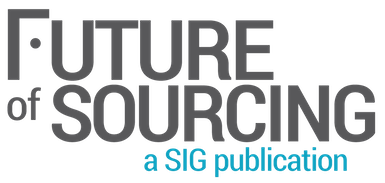From April this year, companies operating in the UK will need to get their supply chains (which includes overseas outsourcing arrangements) in order to meet new reporting requirement in the UK.
The new Modern Slavery Act 2015 (the MSA) represents the first European legislation aimed at 21st-century trafficking / forced labour and it requires businesses operating in the UK with a turnover of over £36 million to prepare and publish a “slavery and human trafficking statement” for each financial year. According to the International Labour Organisation, around 21 million people are in a form of slavery today and the idea behind this new legislation is to increase transparency in the global supply chain and to ensure these supply chains are slavery free.
What does the statement need to cover?
The statement must describe the steps the organisation has taken to ensure that slavery and human trafficking are not taking place in any of its supply chains.
Whilst there are no specific requirements to follow on layout, content or level of detail, the MSA guidance encourages clear / informative statements that have considered:
- the organisation’s structure, business and supply chains taking into account the sectors and countries from which goods / services are sourced;
- whether policies in relation to slavery and human trafficking exist;
- details of due diligence processes in relation to slavery and human trafficking;
- clarification of the parts of the business and supply chains where there is a risk of slavery and human trafficking taking place, including the steps taken to assess, manage and mitigate that risk;
- disclosure of relationships not just with suppliers but also trade unions and other bodies representing workers; and
- training available to staff.
Whilst businesses can comply by publishing a statement that no steps have been taken, this approach risks attracting negative stakeholder, NGO and media attention. In addition, it is likely that MSA statements will become a common requirement in tender / contractual documentation – this means that a failure to engage could lead not only to lost business but also potential financial liability in the event an issue arises in the future.
Global reach of the new provisions
UK companies are accountable for slavery and labour abuses occurring across their whole chain of operations wherever based. The MSA will also apply to foreign companies that “carry on a business” in the UK.
What are the penalties for failure to comply?
If businesses fail to comply, the Secretary of State may seek an injunction / order through the High Court requiring the business to comply with any subsequent failure putting the business in contempt of court.
What should businesses do now?
Full and proper compliance with the requirements of the MSA is not going to be a straightforward or quick process for many businesses especially those with outsource arrangements. Best practice will see businesses seeking to understand and map out supply chains and outsource arrangements; the introduction/enhancement of slavery and human trafficking policies / procedures; and the seeking of assurances and quite possibly indemnities as regards slavery / human trafficking from outsource suppliers.









